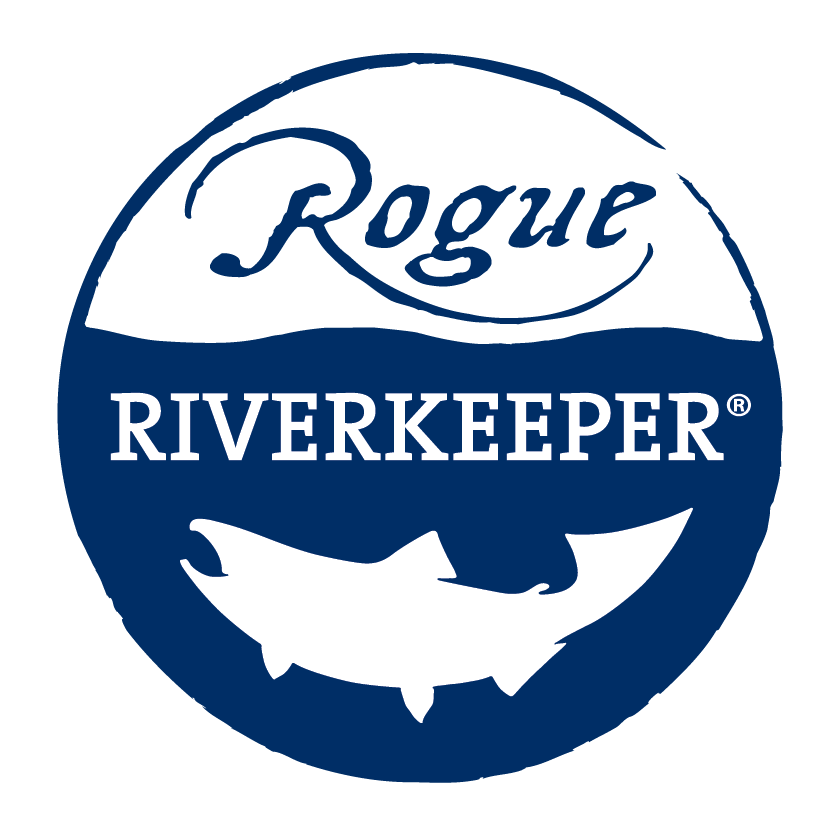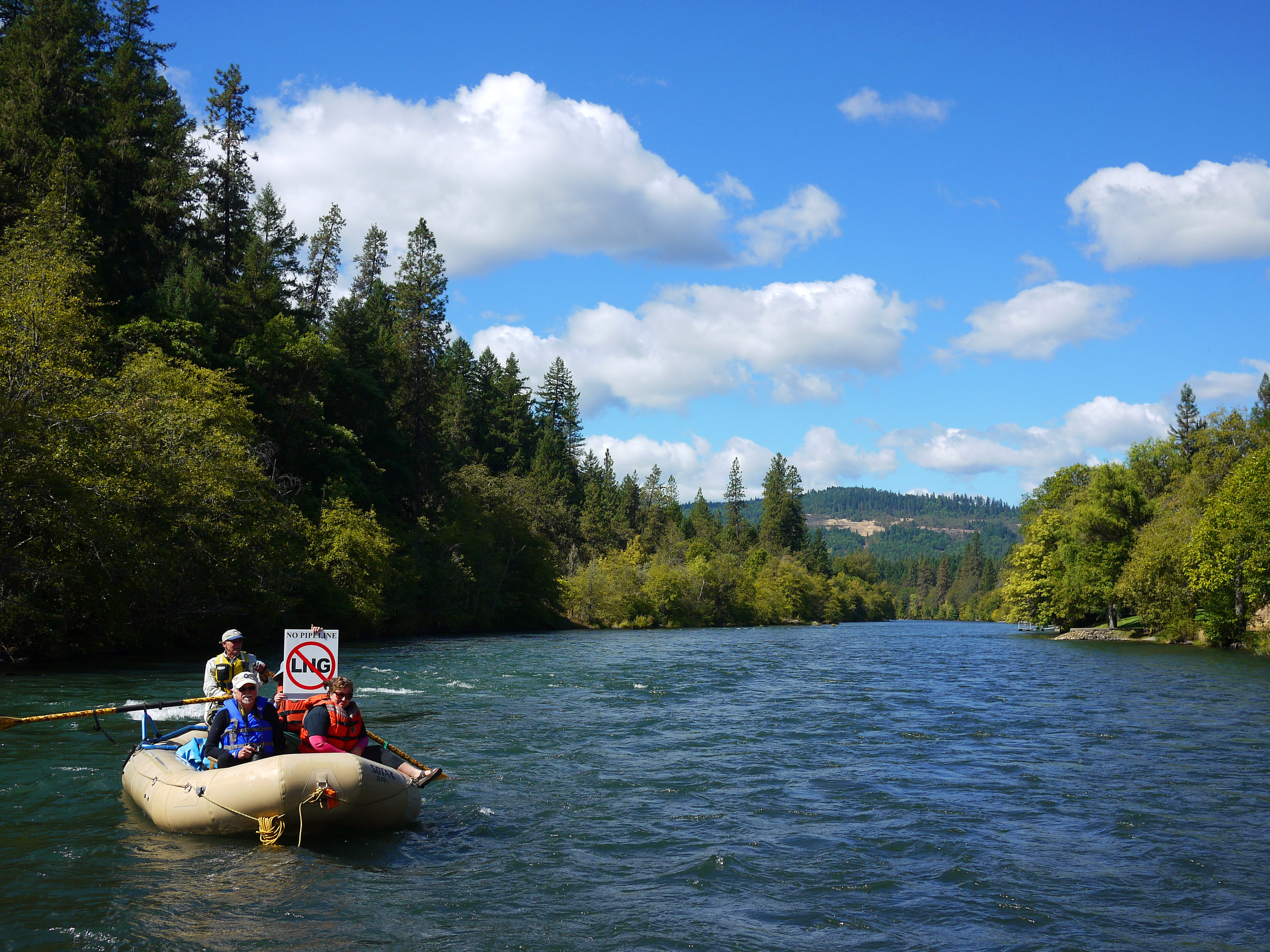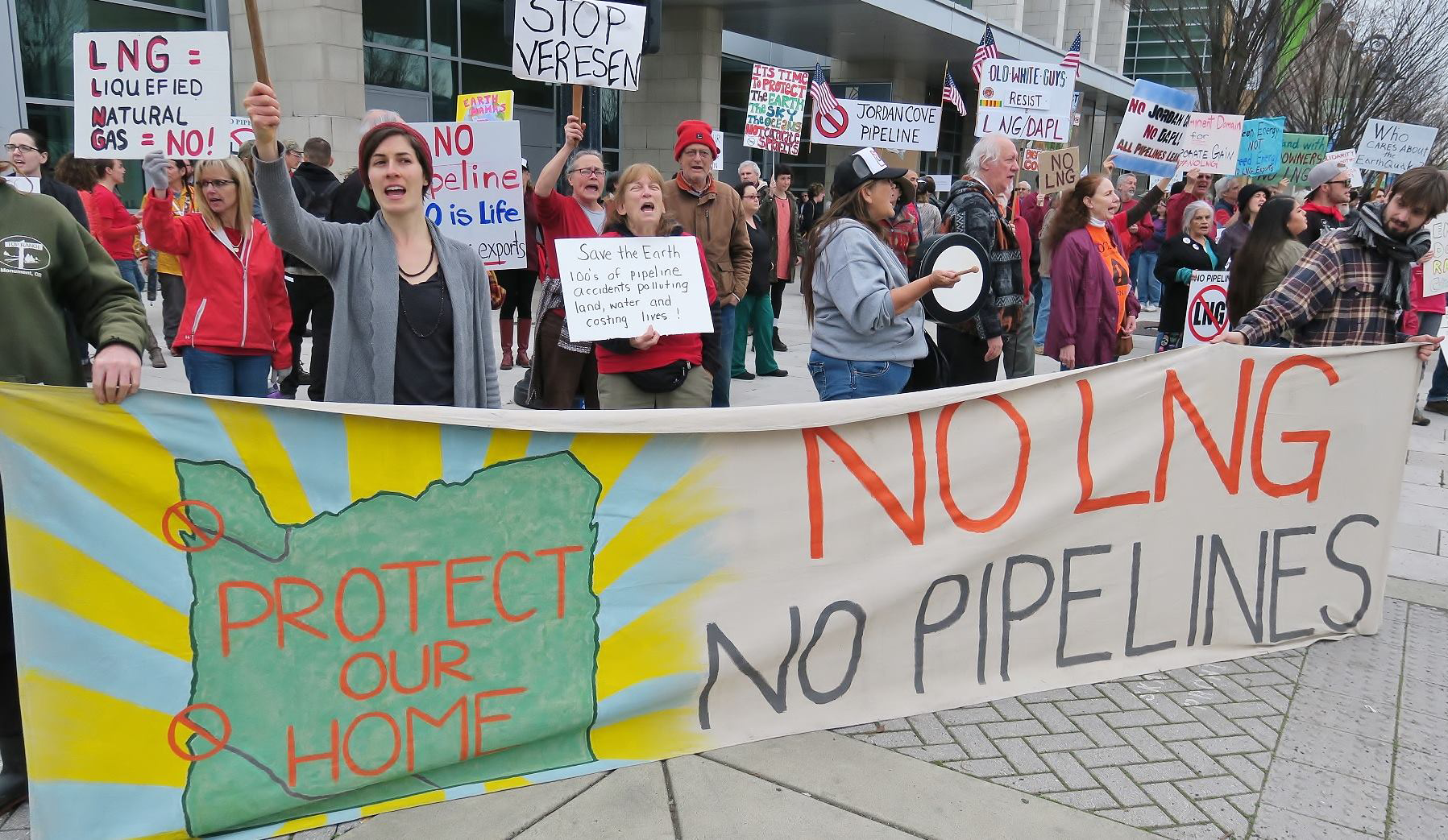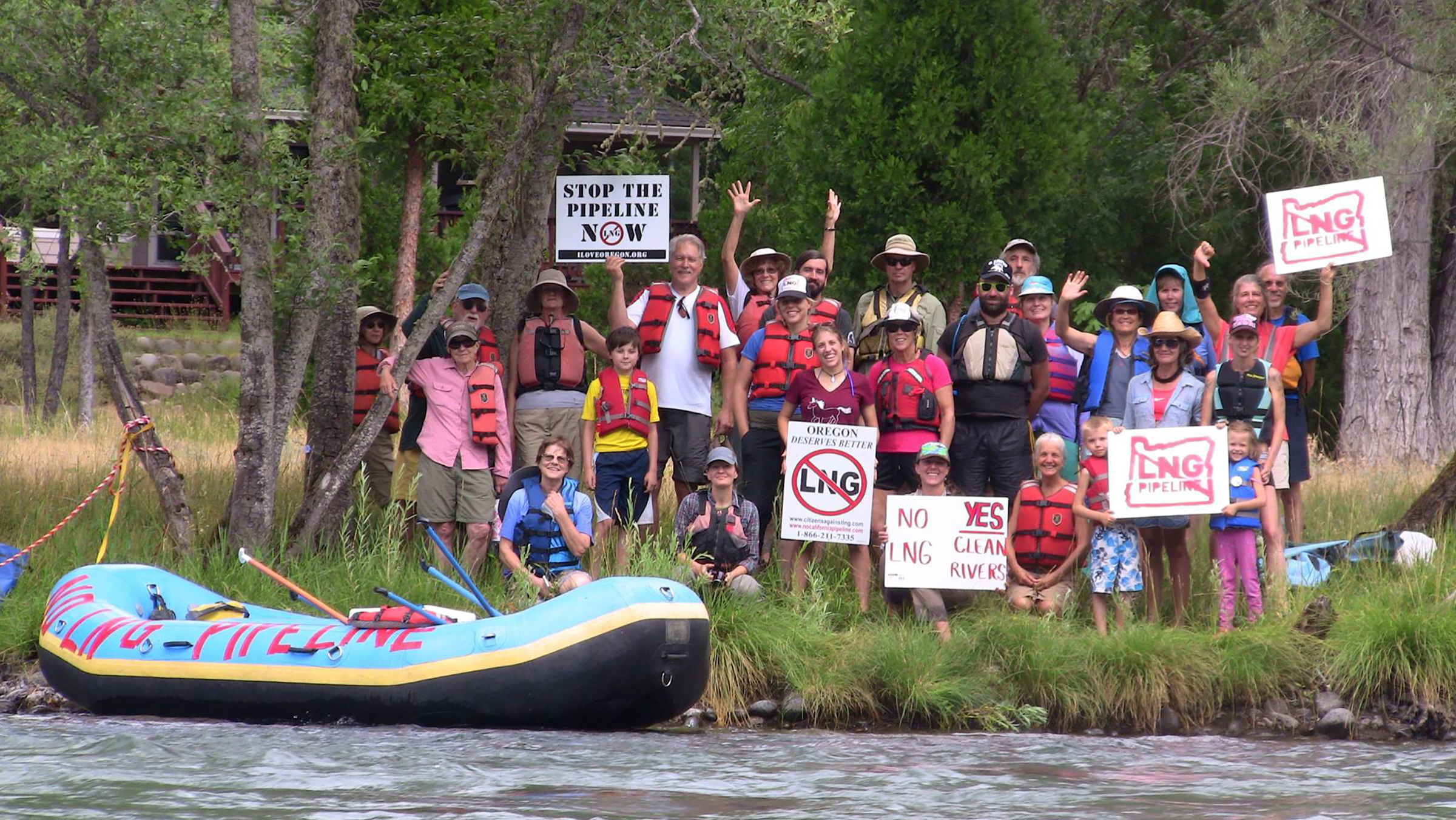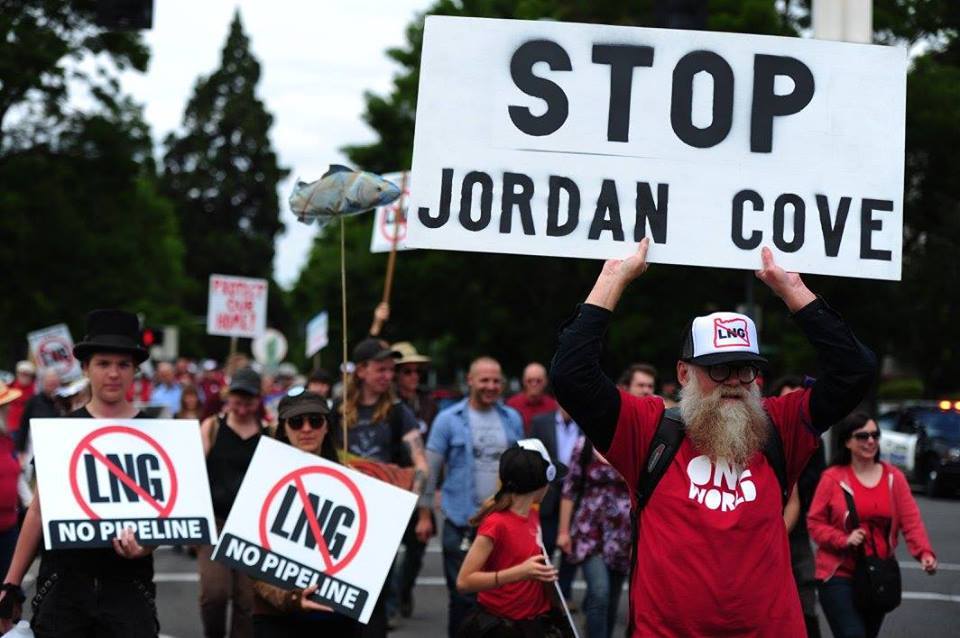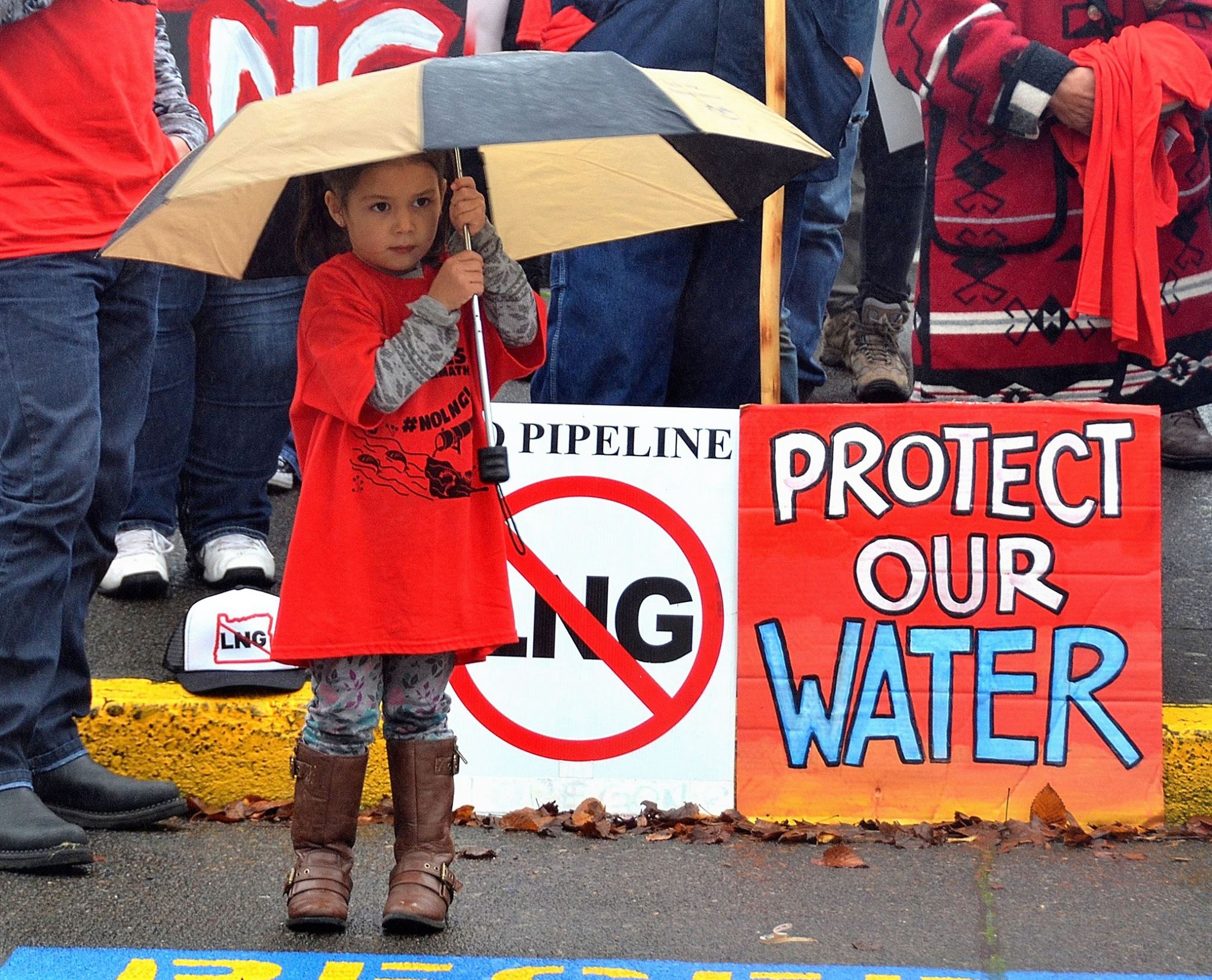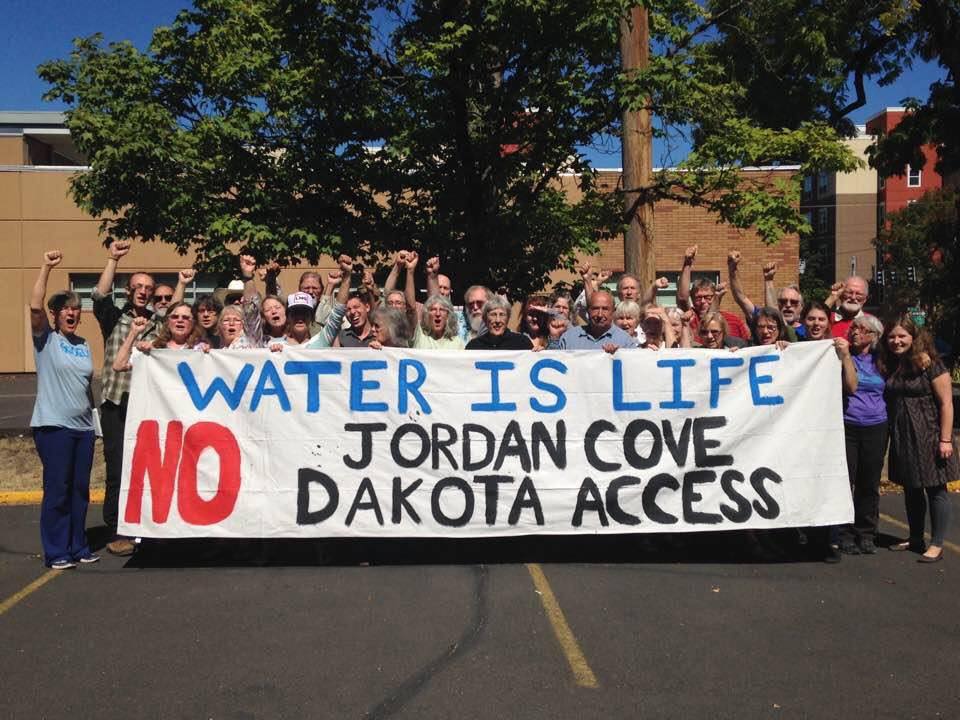Protecting waterways from the Pacific Connector Pipeline
Impacts to Clean Water, Rivers, and Fish
The Pacific Connector Pipeline and associated Jordan Cove LNG terminal would have significant impacts on waterways throughout southern Oregon. The company needs crucial Clean Water Act permits in order to construct the pipeline and terminal and the state has the authority to deny these permits if impacts to public waterways prove significant. Rogue Riverkeeper and a statewide coalition are determined to prove this is true.
Impacts to waterways include:
Crossing of 485 waterways and 6 miles of wetlands;
Trenching, blasting, damming, and/or drilling at each stream crossing resulting in degraded fish habitat and water quality, increased sediment pollution and turbidity;
Removal of stream side trees resulting in reduced shade and increased stream temperature;
Dredging of ~5.7M cubic yards of sediment from Coos Bay to re-shape the bay for LNG tankers that will destroy fish and shellfish habitat and result in increased tsunami hazard;
Increased ship traffic in Coos Bay that will impact public access for fishing and recreation;
Reduction in river and stream flows from water withdrawals for pipe testing;
Crossing of rivers and streams that are drinking water sources for 12 public drinking water systems risking impacts to 156,000 Oregonians;
Use of nearly 90 million gallons of fresh water for construction and pipeline testing purposes;
Limits in recreational use of public waterways due to construction, sedimentation, ship traffic, water use, etc.
Maps and content by Christina Shinani, https://christinashintani.wixsite.com/cmshintani
